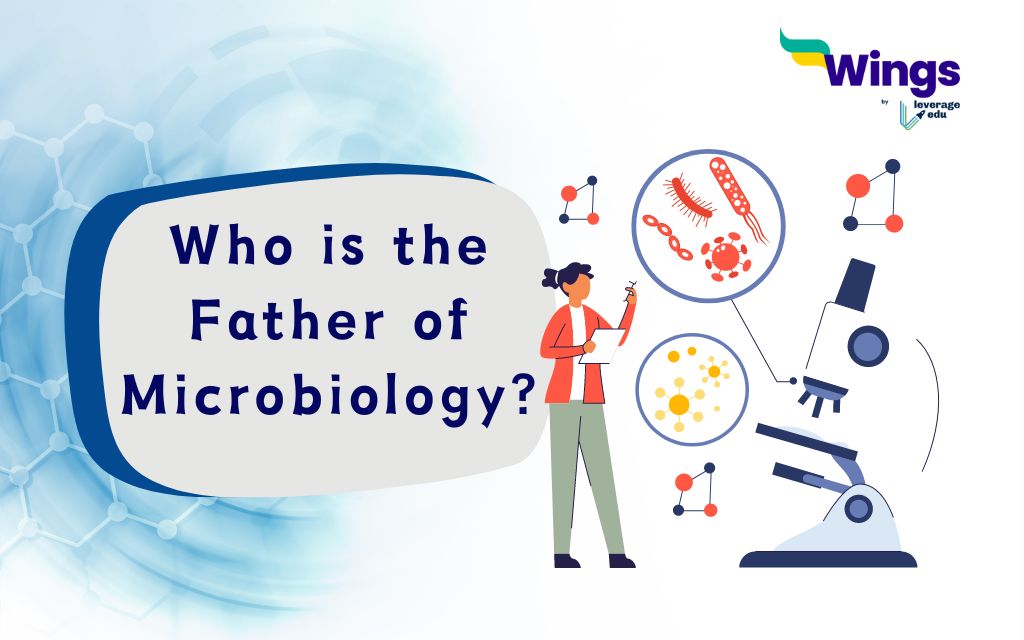The father of microbiology is Antonie van Leeuwenhoek. Through his self-made, single-lens microscopes, Leeuwenhoek became the first person to observe and describe bacteria, earning him this title. Microbiology, the study of microscopic life forms, began in 1674 when Antonie van Leeuwenhoek, through his own invention of powerful microscopes, became the first person to observe and document the existence of these tiny organisms, which we now call microbes. These microbes, encompassing bacteria, fungi, viruses, and archaea, can be single-celled or multicellular and are too small to be seen without magnification.
About Antonie Van Leeuwenhoek: The Father of Microbiology
Antonie van Leeuwenhoek was born on October 24, 1632, in Delft in the Dutch Republic to a family basket manufacturer.
| Category | Details |
| Born | October 24, 1632, Delft, Dutch Republic |
| Family Life | Married Barbara de Mey (1654) |
| 5 children (3 sons & 1 daughter died young) | |
| Career | Opened a draper’s shop (1654) |
| Passed land surveyor exam (1669) | |
| Appointed “Weights and Measures Inspector” (1679) | |
| Legacy | Pioneering work in microbiology (though not explicitly mentioned) |
Also Read- Who Is The Father Of History?
What is Microbiology?
Microbes are tiny powerhouses that have an impact on almost everything. These are too small to see, rule the Earth! They are everywhere – inside, on, and around us. However, these tiny titans play crucial roles in nutrient cycles, breaking down waste, influencing climate, and even spoiling food. Sometimes, these can cause disease, but they are also key to fighting it.
Microbes are nature’s workhorses, making medicine, and fuel, cleaning our mess, and providing tasty treats. Microbiologists study these marvels. Their discoveries, like vaccines and treatments, have revolutionized society
FAQ
Antonie van Leeuwenhoek is the microbiology father.
J. V. Bhat is the father of microbiology in India.
Louis Pasteur revolutionized microbiology by proving germs cause disease, stopping spontaneous generation, inventing pasteurization, and creating early vaccines.
Relevant Blogs
| Which Is India’s First Super Computer? | Who Is The Father Of Economics? |
| Who Is The Father Of Mathematics? | 10 Facts About Ramanujan: The Greatest Mathematician |
| Who Is The Father Of History? | Who Is The Father Of Computer? |
| Who invented the Supercomputer? | Who Are the Founding Fathers of Physics? |
| Know all about the Father of Soil Science | Who is the Father of Modern Politics? |
With this, we come to the conclusion of who is the father of microbiology. For more such content, visit our general knowledge page.


 One app for all your study abroad needs
One app for all your study abroad needs












 60,000+ students trusted us with their dreams. Take the first step today!
60,000+ students trusted us with their dreams. Take the first step today!